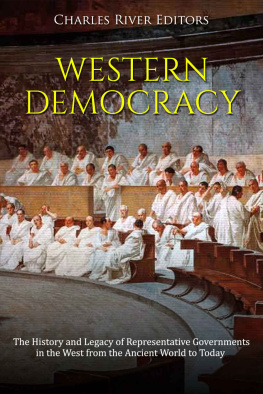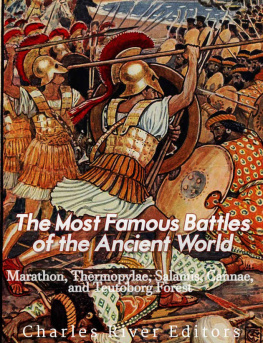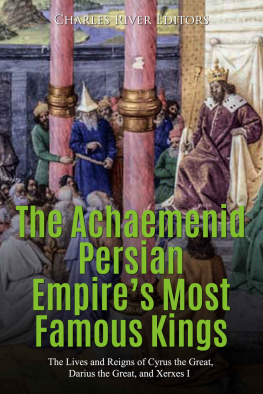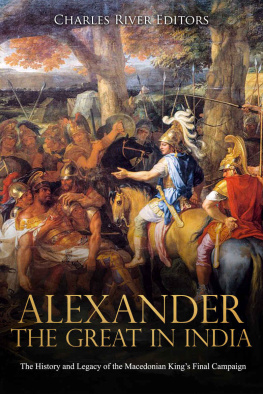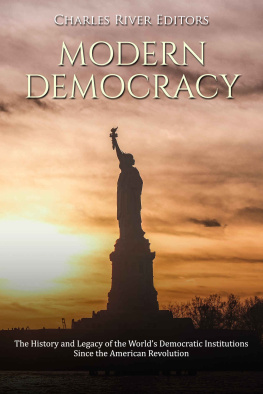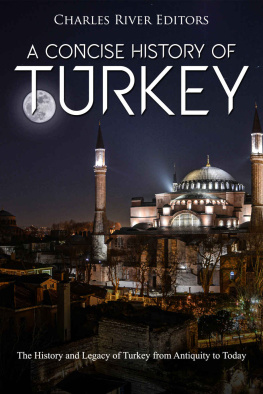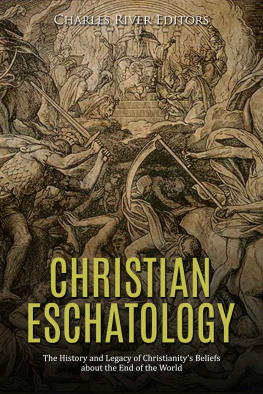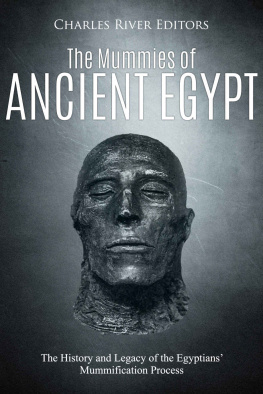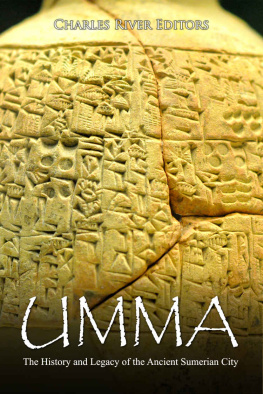Charles River Editors - Western Democracy: The History and Legacy of Representative Governments in the West from the Ancient World to Today
Here you can read online Charles River Editors - Western Democracy: The History and Legacy of Representative Governments in the West from the Ancient World to Today full text of the book (entire story) in english for free. Download pdf and epub, get meaning, cover and reviews about this ebook. year: 2020, publisher: Charles River Editors, genre: Politics. Description of the work, (preface) as well as reviews are available. Best literature library LitArk.com created for fans of good reading and offers a wide selection of genres:
Romance novel
Science fiction
Adventure
Detective
Science
History
Home and family
Prose
Art
Politics
Computer
Non-fiction
Religion
Business
Children
Humor
Choose a favorite category and find really read worthwhile books. Enjoy immersion in the world of imagination, feel the emotions of the characters or learn something new for yourself, make an fascinating discovery.
- Book:Western Democracy: The History and Legacy of Representative Governments in the West from the Ancient World to Today
- Author:
- Publisher:Charles River Editors
- Genre:
- Year:2020
- Rating:4 / 5
- Favourites:Add to favourites
- Your mark:
- 80
- 1
- 2
- 3
- 4
- 5
Western Democracy: The History and Legacy of Representative Governments in the West from the Ancient World to Today: summary, description and annotation
We offer to read an annotation, description, summary or preface (depends on what the author of the book "Western Democracy: The History and Legacy of Representative Governments in the West from the Ancient World to Today" wrote himself). If you haven't found the necessary information about the book — write in the comments, we will try to find it.
Western Democracy: The History and Legacy of Representative Governments in the West from the Ancient World to Today — read online for free the complete book (whole text) full work
Below is the text of the book, divided by pages. System saving the place of the last page read, allows you to conveniently read the book "Western Democracy: The History and Legacy of Representative Governments in the West from the Ancient World to Today" online for free, without having to search again every time where you left off. Put a bookmark, and you can go to the page where you finished reading at any time.
Font size:
Interval:
Bookmark:
By Charles River Editors
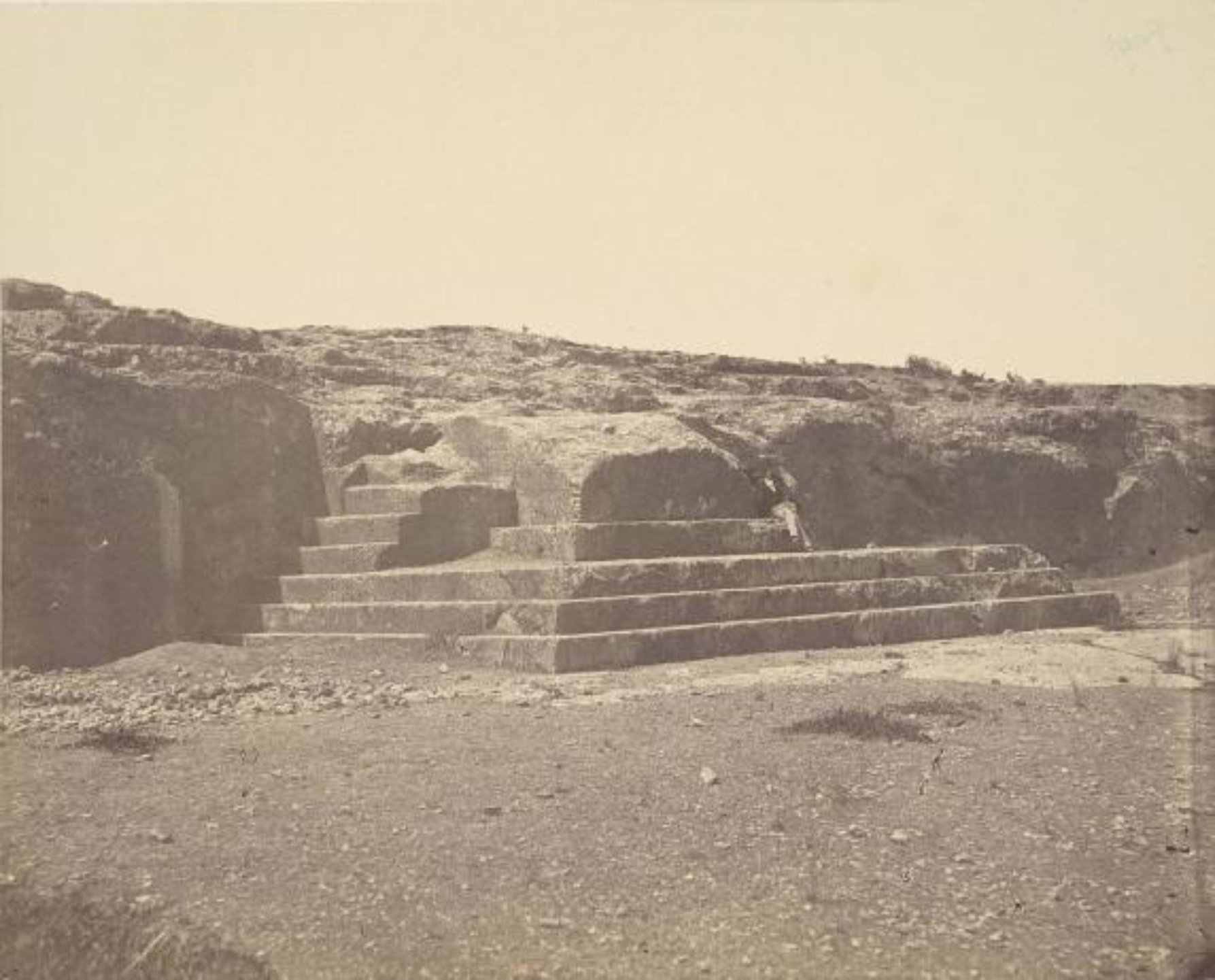
The Pnyx with the speaker's platform, the meeting place of the people of Athens

Charles River Editors provides superior editing and original writing services across the digital publishing industry, with the expertise to create digital content for publishers across a vast range of subject matter. In addition to providing original digital content for third party publishers, we also republish civilizations greatest literary works, bringing them to new generations of readers via ebooks.
Sign up here to receive updates about free books as we publish them , and visit Our Kindle Author Page to browse todays free promotions and our most recently published Kindle titles.
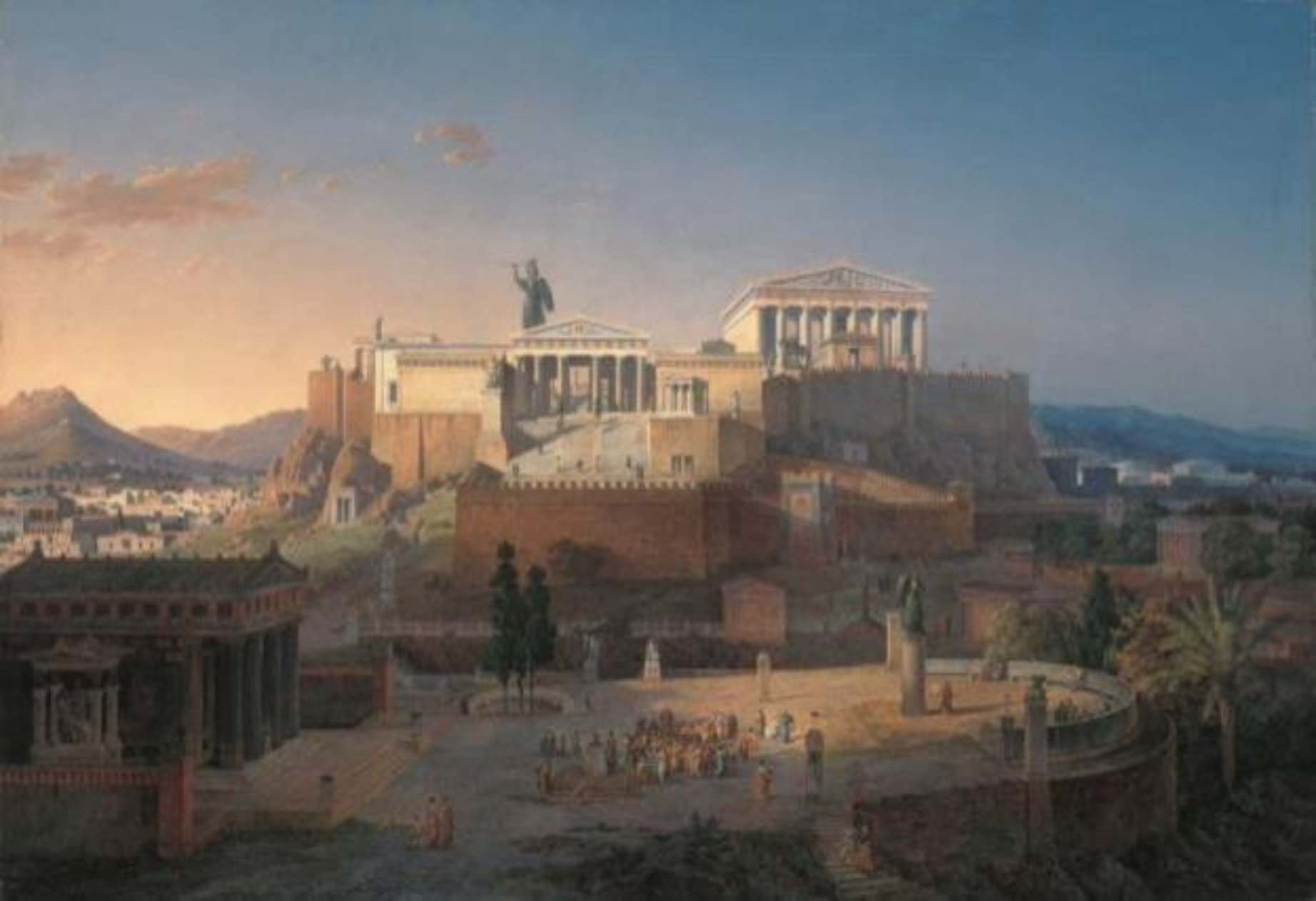
Leo von Klenzes painting of the Acropolis (1846)
What I would prefer is that you should fix your eyes every day on the greatness of Athens as she really is, and should fall in love with her. When you realize her greatness, then reflect that what made her great was men with a spirit of adventure, men who knew their duty, men who were ashamed to fall below a certain standard. If they ever failed in an enterprise, they made up their minds that at any rate the city should not find their courage lacking to her, and they gave to her the best contribution that they could. The Funeral Oration of Pericles , quoted by Thucydides
In todays modern world every political regime, even the most authoritarian or repressive, describes itself as democracy or a Democratic Peoples Republic. The concept of rule by the people, on behalf of the people, has come to be accepted as the norm, and very few would overtly espouse the cause of dictatorship, absolute monarchy or oligarchy as the most desirable political system upon which to base the government of any country.
It is also generally accepted that democracy, as a political ideology, began in Greece, specifically in Athens, in the 7th century BCE and reached its zenith in the 5 th century under the leadership of Pericles. Dating an exact starting point is impossible, but at the beginning of the 7th century BCE, Solon inaugurated a series of reforms that began the movement away from rule by individuals, or tyrants, and by the end of that century the reforms of Cleisthenes provided the basis of the Athenian democratic system that culminated in the radical institutions introduced by Ephialtes and Pericles in the 5th century. The result was the first, and possibly only, truly participative democratic state.
Of course, not every inhabitant of Athens enjoyed the right to vote. Only full citizens could do that, and they represented approximately 30% of Athenss male population, numbering between 30,000 and 60,000 during Athens Golden Age and declining rapidly throughout the Peoloponnesian War. The remainder was made up of metics and slaves, who vastly outnumbered free citizens and, indeed, almost all other slave populations in Hellas, a fact which the Athenians often conveniently chose to forget when singing the praises of their democracy. There is a very strong indication that foreign chattel slaves were an utter necessity to Athens economy, and though they did not serve as fleet rowers as they would have done in Rome, they still carried out the myriad of unpleasant and demeaning jobs which allowed Athenian citizens the free time to actively participate in the citys politics. In many ways, without slaves, there would have been no democracy in Athens.
Women also had vastly inferior rights in Athens than those of many other poleis (chiefly Sparta), and were virtually regarded as the property of their fathers, brothers and husbands. Women enjoyed no political rights and precious few legal ones, they were forced into arranged marriages at an extremely young age, and they were even fed differently from their brothers while growing up, leading to an average mortality age that was extremely lower than that of men of comparable social class. If a woman was widowed, she was generally forced to marry a relative and could own no personal property of her own. The status of slaves and women in Athens is at odds with todays image of it as the most enlightened and free of Greek poleis , and that of metics was not much better, though even if they could not participate in politics many of them became immensely rich through trade and were thus able to influence those Athenians who could. Despite the incorporation of the thetai into the government of the city, then, the Athenian democratic model remained though progressive for its time still restrictive compared to democracy as practiced around much of the West today.
This left approximately 20% of the population eligible to participate in politics, even after the populist reforms of Solon and Cleisthenes. These were the adult male citizens of Athens who had undertaken mandatory military training, and it was they who staffed the three main political bodies which made up the Athenian system of government. However, unlike most self-representative governments before the 19 th century, Athenian democracy did not require that citizens own property, making it a more open class of citizenry than most governments that followed it. In the same vein, Athenian citizenship did not depend on reaching a certain economic class.
Ironically, between 322 BCE and the 19 th century, Athenian democracy was almost totally forgotten. If there was any mention of democracy in Athens at all, it was in reference to so-called but largely mythical notions of Solonian democracy as recorded in Plutarchs Life of Solon or Aristotles Politics . At the beginning of the 19th century, scholars such as August Boeckh began the evaluation and study of democratic Athenian institutions, and inscriptions and the writings of Thucydides and Demosthenes, among others, were used to re-construct those democratic bodies and to gain an understanding of their workings. Later in the century, academics, particularly George Grote, provided new insights into the Athenian democratic processes, and today there is a much fuller understanding of what contributed to Athenian political life. That said, the questions of how and why Athens came to develop the political system it did remain a major area of academic contention.
The period of the Roman Republic, generally dated from 509-27 BCE, is an entirely different matter. There is significant documentation that enables historians to analyze how Rome cemented its position within the Italian peninsula before pushing ever outward to create the new provinces that formed the core of the vast Roman Empire in the third phase that came to dominate all of Europe for so long. The period of the Republic saw those with the emerging powers having to grapple with new political situations, the administration of a diverse domain while contending with political disorder at home, commercial and financial expansion, and complex issues of land distribution, the role of the military, new ideas in religion, and the emergence of new class systems. These years were certainly vibrant and laid the foundations of such characteristics as Roman discipline and the ability to adapt, as well as witnessing the formation of its political structure. The unique farmer-soldier society evolved to the extent that a few Roman citizens were able to dominate their world and time. It was not a tranquil era, but it was one in which those interested in new ideas and philosophies could thrive, and in which the conflicts between the aspirations of the great Roman philosophers and the pragmatically minded senior political and military figures drove the formation of the Roman state and provided the bedrock for its success.
Font size:
Interval:
Bookmark:
Similar books «Western Democracy: The History and Legacy of Representative Governments in the West from the Ancient World to Today»
Look at similar books to Western Democracy: The History and Legacy of Representative Governments in the West from the Ancient World to Today. We have selected literature similar in name and meaning in the hope of providing readers with more options to find new, interesting, not yet read works.
Discussion, reviews of the book Western Democracy: The History and Legacy of Representative Governments in the West from the Ancient World to Today and just readers' own opinions. Leave your comments, write what you think about the work, its meaning or the main characters. Specify what exactly you liked and what you didn't like, and why you think so.

